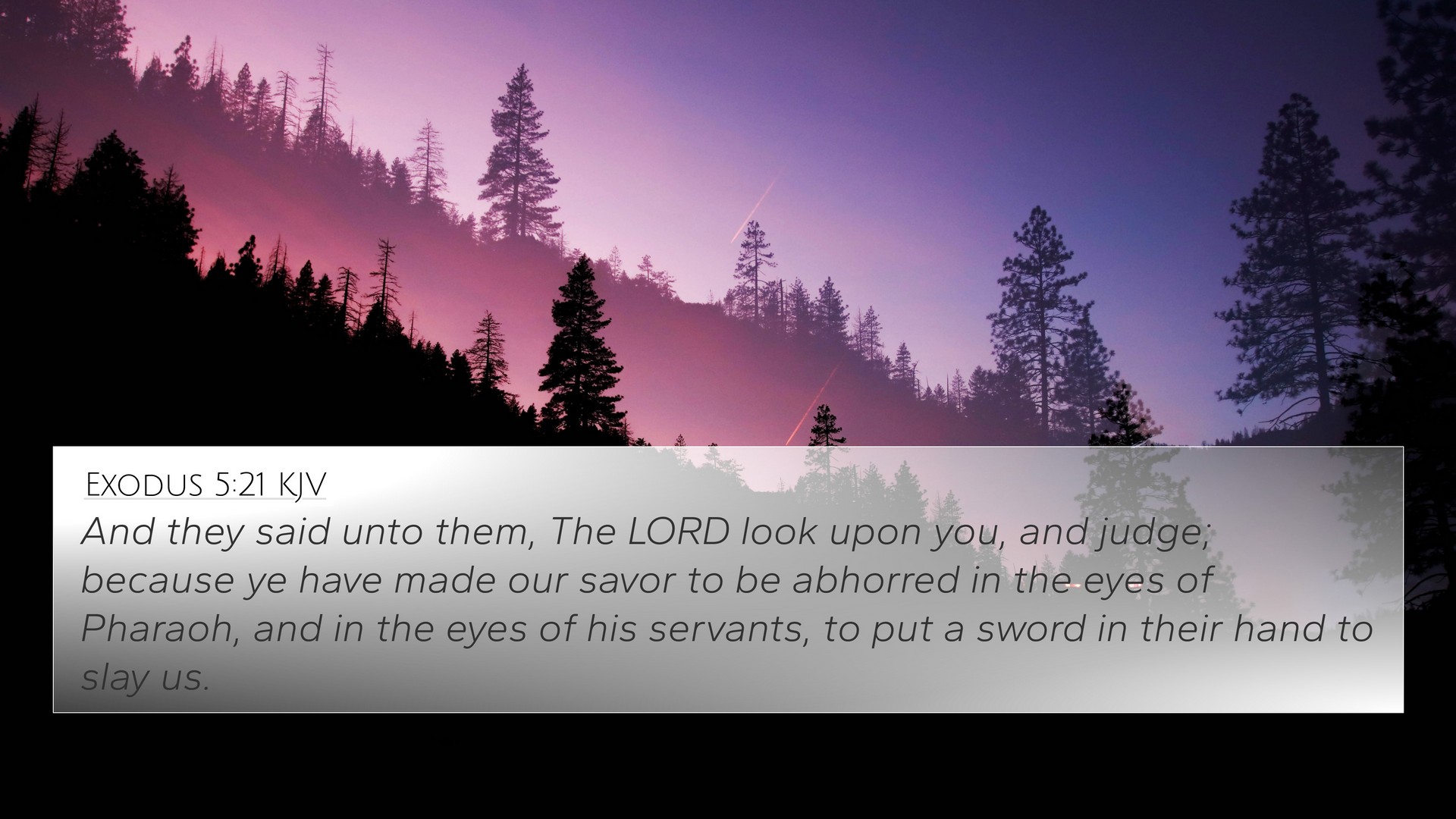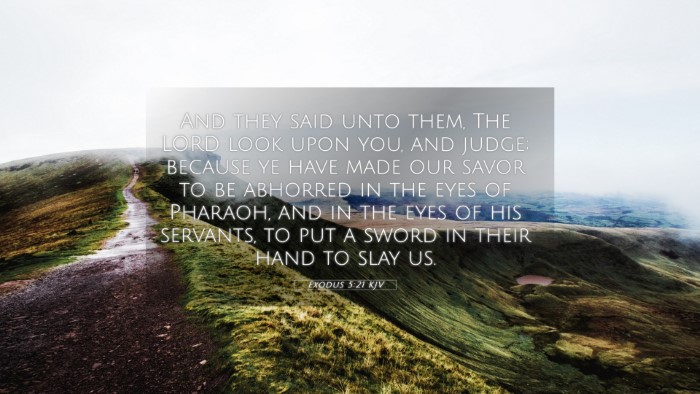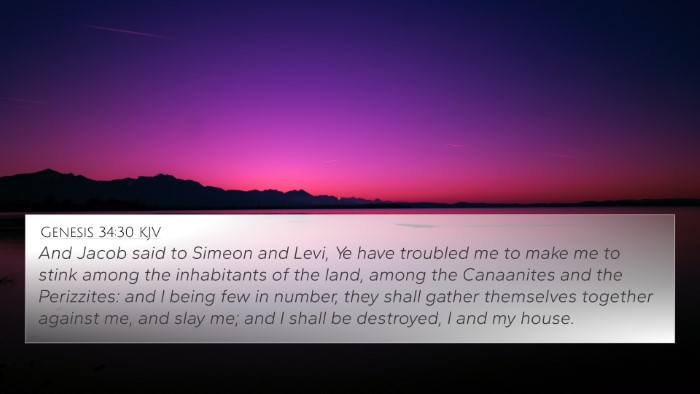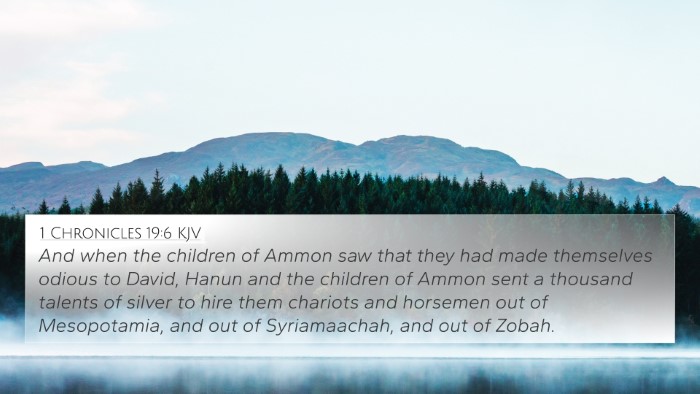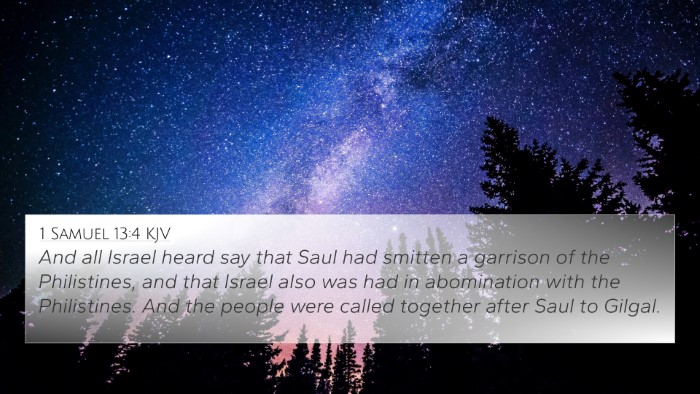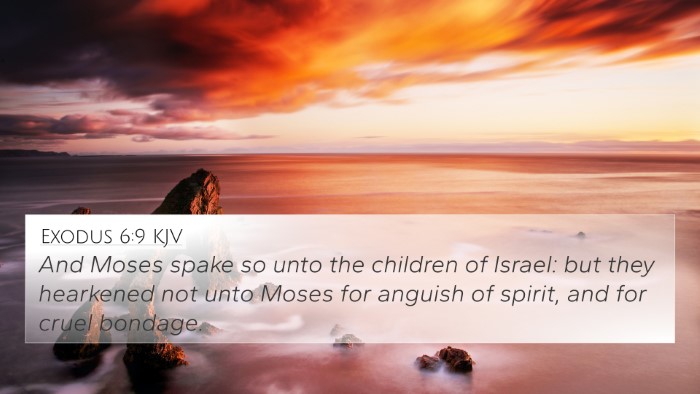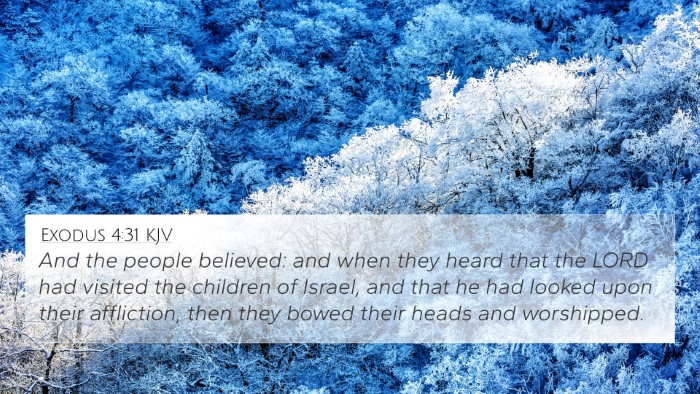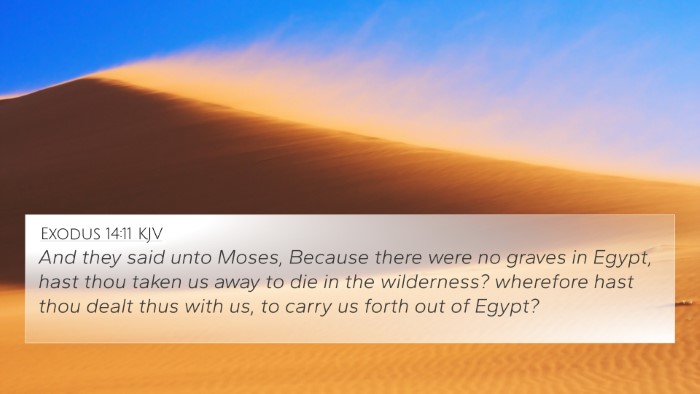Understanding Exodus 5:21
Exodus 5:21 states: "And they said unto them, The LORD look upon you, and judge; because ye have made our savour to be abhorred in the eyes of Pharaoh, and in the eyes of his servants, to put a sword in their hand to slay us." This verse is situated within the narrative of the Israelites' oppression under Pharaoh, following Moses and Aaron's demand for the freedom of the Israelites.
This verse reveals the emotional and spiritual turmoil faced by the Hebrew slaves. They interpret Moses and Aaron’s actions as having provoked Pharaoh's wrath further against them, resulting in intensified labor and suffering.
Context and Meaning
The Israelites express their distress to the leaders, feeling that their situation has worsened because of Moses' and Aaron's intervention. The leader’s cry reflects their lack of understanding regarding God's plan and timing. Matthew Henry emphasizes that their blame signifies a lack of faith and an immediate desire for relief, putting the blame on Moses and Aaron instead of seeing the bigger picture of salvation.
Albert Barnes points out that this response illustrates a common human tendency to blame others during times of distress, rather than recognizing broader providential movements at work. Their despair also lays the groundwork for the following miraculous signs and the eventual exodus.
Adam Clarke notes that the term "savour" refers to the way the Israelites felt their condition had become unpalatable to Pharaoh, indicating their loss of favor in his sight. The emotional weight of their suffering is tangible; they perceive their bondage not just in terms of labor but as a degradation of their very identity and relationship with God.
Thematic Connections and Cross-References
This verse connects with several themes across the Bible, illustrating despair, the consequences of oppression, and the faithfulness of God's promises.
- Exodus 3:19-20 - God foretells Pharaoh's resistance and the ensuing signs that will be necessary for deliverance.
- Exodus 6:9 - Later, God reassures the Israelites despite their initial distrust.
- Psalms 105:23-25 - Reflects on Israel's plight and God's ultimate intervention.
- Romans 8:28 - God works all things together for good to those who love Him, emphasizing trust in divine providence.
- 2 Corinthians 4:8-9 - As Paul recounts afflictions and resilience, it parallels the suffering experienced by the Israelites.
- Matthew 5:10-12 - Jesus teaches about the blessings of perseverance under persecution, mirroring the Israelites' plight.
- Isaiah 41:10 - God’s promise to strengthen and uphold those who feel abandoned or oppressed.
Exploring Connections Between Bible Verses
The emotional turmoil expressed in Exodus 5:21 links distinctly to New Testament themes of suffering and faithfulness. These connections facilitate an understanding of how God works through adversity to fulfill His promises:
- James 1:2-4 - The call to count trials as joy mirrors the struggle of the Israelites with hope amid suffering.
- 1 Peter 1:6-7 - The refinement of faith through trials connects the despair of the Israelites with the Christian experience.
- Luke 22:31-32 - Jesus speaks to Peter about his coming trials, paralleling Israel’s struggles and ultimate redemption.
Using Bible Cross-References
Engaging with cross-references is a vital tool for deeper Bible study. Utilizing resources such as a Bible concordance or a Bible cross-reference guide enables readers to identify and explore these connections effectively. Here, we demonstrate how to find relevant verses:
- Identifying connections: Look for thematic links between books, such as the experiences of Israel in Exodus and the Church’s challenges in Acts.
- Tools for cross-referencing: Use a Bible reference resource that offers thematic and chronological frameworks.
- How to utilize these tools: Engage in cross-reference Bible study methods to build a comprehensive understanding of a topic.
Conclusion on Exodus 5:21
The verse serves as a poignant reminder of the hardships faced by those awaiting deliverance, reflecting our own spiritual battles. As believers navigate through their trials, the stories of the past resonate, illustrating the faithfulness of God through generations.
By investigating the inter-Biblical dialogue from these connections, one can discern God’s unchanging nature amidst shifting circumstances, fostering a robust faith in His promises of redemption.
